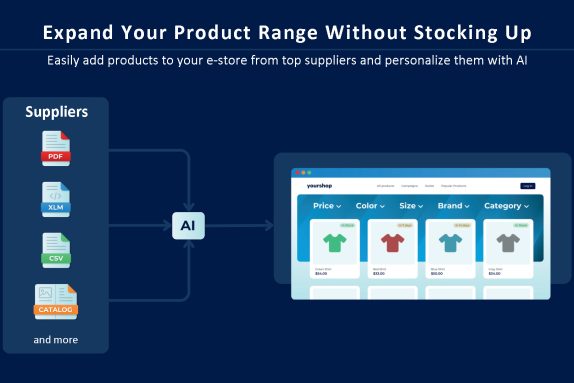“After a detailed analysis of your needs and a thorough consideration of various solution options, we’ve concluded that the best e-commerce software for your company is the one we offer.”
Have you heard this joke too? You can’t really blame the developer for this comment—unlike cats, we only have one life, and we don’t have the time or energy to specialize in multiple software platforms. In this post, we’ll share our experience on what to do if your WordPress e-commerce site becomes slower than expected, why this happens, and at what point you should consider switching to a larger platform.
Background
When Lumav (then Aedes) was founded in 2009, the first software chosen by CEO Silver was WordPress. Magento came into play a few years later with larger clients, and when we were the first Estonian-capitalised company to be selected as a Magento partner in 2018, we gave up on developing new WordPress solutions. We have years of experience with both software, but the reason for specialising in Magento was primarily the decision to do more challenging projects for e-stores that were doing better than average ones.
E-shop is Growing Too Fast?
At least a couple of times a year, successful e-commerce merchants who have grown their business from scratch to a significant size within a few years come to us. The collaboration with the developer has gone well—they think along, offer new ideas, are proactive, and create great designs. As the number of customers grows, the product range is expanded, integrations with business software are created, more plugins are added, and the store is made multilingual. At some point, however, strange performance issues start to arise with the e-commerce site. Together with the developer, solutions are sought—a more powerful server, code optimization, a new design, maybe even a new developer. While these measures offer some relief, as the business grows, the problems keep recurring, and resolving them becomes increasingly costly.
In the end, the client has a store with a beautiful design and a fine-tuned customer journey, but it crashes on Black Friday, is occasionally slow for no reason, or doesn’t update data. Like a moody child, it requires constant attention. Meanwhile, the owners hold their breath, fearing when it will explode. Planning campaigns becomes increasingly difficult because it’s unclear how the e-commerce site will handle the load. The client is frustrated that they can’t run their business, and also the development team is unhappy—they want to develop new, cool stores but are stuck fixing bugs with this customer. When they see the client’s name on the phone screen calling yet again, they sigh deeply.
In those (rare) cases when a business outgrows the platform, eshop owner quietly starts to look around and is doing homework on a new solution and partner. A developer who wants to keep the client may step in and even invest in learning a more powerful platform. But the technical solutions serving larger data volumes for e-commerce are not simpler.
Putting the Cart Before the Horse
WordPress is a very popular and flexible platform with a large community, many modules, and is relatively easy to develop. The solution, originally intended for blogging, gains e-commerce functionality through a separate WooCommerce module, which is not built into WordPress. It’s an ideal solution for small or medium-sized e-commerce stores with a catalog size of up to a few thousand products, without any special requirements, and we have directed some of our leads and clients towards this.
Problems arise when the business starts doing too well, and the platform can no longer keep up with business needs. The challenge with the standard WordPress solution is that a heavy e-commerce software is attached to simpler website software, meaning, in plain terms—WordPress’s architecture does not account for the needs of a large-scale e-commerce store.
Performance and speed bottlenecks usually start to appear under the influence of one or more of the following components:
- The number of products increases, and integrations with XML suppliers are created.
- The customer base grows, new markets are opened, and new languages/store views/currencies come into play.
- More WordPress plugins are added to improve user experience, and custom solutions are made.
The result is a user-friendly store with great features, but unfortunately, it can’t handle the load. Developer skills vary, and a good out-of-the-box thinking WordPress developer might raise the bar to tens of thousands of products, but it’s always worth asking for examples—whether and how such capability has reached. Below is some statistics showing the average store size on WordPress and Magento.
| CMS | Number of E-commerce Stores | Total E-commerce Revenue (2020) |
|---|---|---|
| Magento OS/Adobe Commerce | 750,000 | 20 billion |
| WordPress WooCommerce | 6,000,000 | 5-6 billion |
Source: Dataprot, Store Leads
“The Best E-commerce Store is the Current One…”
…we recently joked with an e-commerce merchant. The effect of switching platforms is often overestimated in the short term and underestimated in the long term. Every go-live, no matter how well planned, causes inconvenience for the merchant, and even SEO takes a small hit, no matter how thorough the live activities are. Software ages faster and faster, and in an ideal world, we would always ride with the latest solutions, but the entrepreneur wants to make a profit, not invest in software changes all the time.
The problem mentioned above, too rapid business growth, is a positive problem, and if it hits, it’s worth congratulating yourself—you’ve done a good job :). If the e-commerce store wasn’t created many years ago, it’s natural that the owner first wants to recoup the investment in the old store and tries to get the most out of the platform before it becomes outdated. Platform performance can be maintained, and quite often, with the help of a third party, it can be postponed for a few years, and only then decide if the time is right.
Switching to a new platform does not automatically mean increased revenue, but it creates the technological basis for growth. Predicting the economy and competitor actions is a thankless task, every business is different, and you never know what might happen in the macro environment. Continuing in the same way might be a suitable decision, but alternatives should always be considered by a good business leader.
How Can Lumav Help?
If the situation described above sounds familiar and you want to consult with a third party, here are some thoughts on how Lumav can assist you:
- We have experience in managing large data volumes and servicing large e-commerce stores, and in addition to Magento, we can assist with hosting, server monitoring, and optimization work for a high-volume WordPress store. It’s also possible to continue working with your existing developer, and we ensure peace of mind that the store remains stable and with maximum possible performance.
- Setting up standalone integration and product enrichment platforms so that when switching to a new store, only the store’s front-end solution needs to be dealt with. All our larger clients use the Product Information Management (PIM) solution. We also actively invest in the adoption of AI solutions.
- Lumav helps you to develop long-term development plans for gradually growing the e-commerce business successfully. Whether it’s new markets abroad (ABC Garden example), B2B solutions (Klick), or a larger product assortment (e.g., eHomer, Decora) from external warehouses.
If you feel like you need support and advice in this matter, let’s talk and find the best solution together.




















